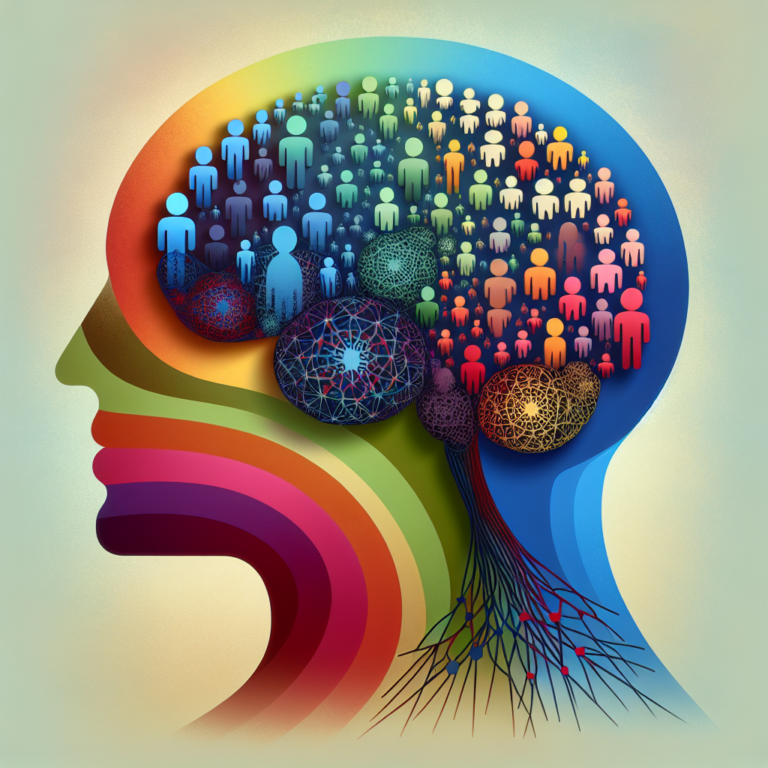
Introduction: Unleashing the Power of Bilingualism
Imagine a world where communication knows no bounds, where minds operate at a higher capacity, and where adaptability and creativity soar. This is not just a utopian dream; it is a reality realized by those who embrace bilingualism. Bilingual Advantage: How Learning Multiple Languages Enhances Cognitive Skills encapsulates a phenomenon where speaking more than one language directly correlates with improved cognitive faculties. As globalization accelerates and interdisciplinary collaboration becomes essential, the importance of bilingualism cannot be overstated. Let’s dive deep into how harnessing multiple languages can redefine our cognitive capabilities.
The Science Behind Bilingualism
Understanding Cognitive Skills
Cognitive skills are the mental processes by which we acquire knowledge and comprehension. These include a range of functions such as thinking, reasoning, problem-solving, and memory. Learning a second language enhances these skills in unique and profound ways.
How Language Learning Engages the Brain
Research indicates that bilingual individuals utilize different areas of the brain compared to monolinguals. A bilingual brain is like a gym for cognitive functions; it continuously exercises pathways that are responsible for attention, control, and conflict resolution. The mental juggling act of switching between languages builds neuroplasticity, the brain’s ability to adapt and grow.
Case Study: The Bilingual Brain in Action
A study conducted at the University of Toronto found that bilinguals outperformed monolinguals on tasks that demanded attention and conflict resolution. Participants engaged in a task that required them to ignore irrelevant information and focus on specific details. The bilinguals exhibited superior performance, showcasing the bilingual advantage in real-world applications.
Cognitive Benefits of Bilingualism
Enhanced Problem-Solving Skills
Bilingualism encourages innovative thinking by stimulating both creative and analytical aspects of the brain. Multilingual individuals are better equipped to approach problems from various angles, leading to more effective solutions.
Improved Memory Retention
Studies reveal that bilinguals have an enhanced working memory. Learning vocabulary, grammar, and syntax in multiple languages strengthens neural connections, resulting in better overall memory performance.
Greater Cognitive Flexibility
Bilinguals frequently switch between languages, fostering cognitive flexibility—the ability to adapt one’s thinking based on changing environments or rules. This adaptability is invaluable in our increasingly dynamic global landscape.
| Cognitive Skill | Monolinguals | Bilinguals |
|---|---|---|
| Problem-Solving | Moderate | High |
| Memory Retention | Moderate | High |
| Cognitive Flexibility | Low | High |
Real-World Applications of the Bilingual Advantage
From the corporate world to academia, the bilingual advantage significantly enhances individual performance and cognitive skills.
Case Study: Bilingualism in the Workplace
A survey by the New American Economy found that bilingual employees are often paid 20% more than their monolingual counterparts. Companies value the bilingual advantage not only for communication but also for the enriched cognitive skills that bilingual individuals bring to the table.
The Lasting Impact of Bilingualism
Lifelong Learning and Brain Health
Bilingualism serves as a mental workout that can benefit individuals throughout their lives. Engaging with multiple languages can delay the onset of age-related cognitive decline, according to several studies, including a landmark study published in the journal Neurology. Bilingual individuals showed a significant delay in the onset of dementia compared to monolingual individuals.
Case Study: Bilingualism and Aging
Researchers at the University of Edinburgh discovered that bilingualism could delay dementia onset by as much as four years. This emphasizes not just the bilingual advantage in youth but also its impact across the lifespan, enhancing cognitive resilience in older adults.
The Role of Education in Bilingual Development
Educational institutions play a crucial role in fostering bilingualism. Programs focusing on language immersion or bilingual education not only improve language skills but also create a richer learning environment that promotes cognitive development.
Case Study: The Immersion Effect
A longitudinal study of a bilingual immersion school in California showed that students exhibited improved standardized test scores in both language skills and math compared to their monolingual peers. The findings illustrate the bilingual advantage in academic performance.
Overcoming Challenges in Bilingual Learning
Addressing Common Concerns
Despite the clear benefits, some may hesitate to embrace bilingualism due to fears or misconceptions. Let’s address these concerns:
Fear of Language Mixing: Many learners worry about mixing languages. However, this is a normal phase in bilingual development and, in fact, demonstrates cognitive flexibility.
Resource Availability: Some areas lack resources for learning multiple languages. Online platforms and language exchange communities are excellent alternatives for aspiring bilinguals.
Time Commitment: While learning languages does require investment, setting small, manageable goals can yield significant rewards over time.
Cultural Barriers: Bilingual individuals often face cultural challenges. Engaging with community groups or media in both languages can help bridge these gaps.
- Emotional Challenges: Language learning can be intimidating. Supportive environments foster confidence, making the process enjoyable and less stressful.
Conclusion: A Journey Worth Taking
In a world that increasingly values adaptability and innovation, the bilingual advantage is more than just a personal skill; it’s a vital asset. Whether you’re a student, a professional, or an individual interested in self-improvement, learning multiple languages enhances cognitive abilities and offers a reservoir of untapped potential.
Now is the time to embrace this journey. Seek out opportunities to learn a new language, immerse yourself in diverse cultures, and enjoy the cognitive benefits that a bilingual brain has to offer. The future belongs to the bilingual—are you ready to take the leap?
FAQs
1. How does learning a second language enhance cognitive skills?
Learning a second language engages various cognitive processes, improving problem-solving abilities, memory retention, and cognitive flexibility. Bilingual individuals tend to perform better in tasks requiring attention and conflict resolution.
2. Is it too late to learn a language as an adult?
No, it is never too late to start learning a new language. Adults can successfully learn new languages, and doing so can lead to cognitive benefits and brain health improvements.
3. What age is best for learning a second language?
While early childhood is often recognized as a prime time for language acquisition, people of all ages can benefit from learning a second language. Each stage of life offers unique advantages for language learning.
4. Can learning multiple languages at once be effective?
Yes, many individuals learn multiple languages simultaneously. Each language can reinforce cognitive skills, though learners need to be mindful of mixing languages during initial stages.
5. What practical steps can I take to start learning a new language?
Begin by setting simple, achievable goals. Utilize language learning apps, join language exchange programs, or enroll in classes. Immersing yourself in the language through music, films, and conversation will enhance your learning experience.
As we’ve explored, the bilingual advantage is not merely a theoretical concept but a transformative journey that can enhance our cognitive skills, reshape our perspectives, and open new avenues for growth. Embrace this enriching path to not just become proficient in languages but to unlock the full potential of your mind!















